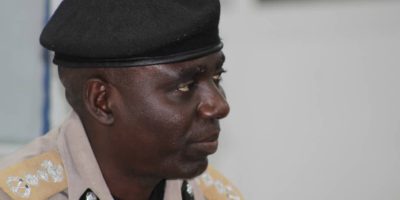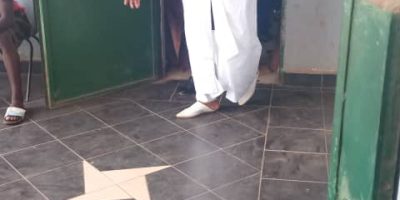By Madi Jobarteh
The announcement by State House on April 8 that the Gambia Armed Forces intends to embark on a large-scale agricultural production in partnership with an American company must be stopped immediately in the interest of democracy and national security. The Gambia Armed Forces must not be given any means to engage and control any aspect of the Gambian economy. The military should rather remain confined to its traditional role which is to protect the territorial integrity and defence of the Gambia and provide humanitarian services where necessary.

Madi Jobarteh
History has shown that countries that allow their military to engage in such large-scale agricultural production or owning industries and supplying vital economic goods and services to the public and exporting to the world end up having the entire country under the firm grip of the military. When that happens the army eventually becomes the kingmaker in deciding who becomes president, and what kind of government to prevail thereby eventually controlling and putting all state institutions at the mercy of the military. That is dictatorship.
The best example of this scenario is Egypt where the national army controls between 45% – 60% of the economy thanks to their control of the economy – in agriculture, industries, and supply of goods and services. This came about as various Egyptian leaders since independence allowed the army to engage in the economy. Will Barrow make the same mistake in the Gambia? Time will tell.
The economic empire of the Egyptian army began with the establishment of the National Organization for Military Production (NOMP) in the 1970s, which included 18 factories, some of which provide military services, while others manufacture electrical appliances. From here the military moved into the sale of land in South Sinai to local and foreign investors in the 1970s. The trend further developed as the army began to take control of many government companies that had been privatized or cooperated with their new owners in the 1990s.
Today Egyptian military-owned companies and its agencies are active in several sectors that had been traditional bastions of big business, such as construction and housing, infrastructure, and urban development, as well as modernization of the health sector. Since the ascent of the current Dictator Fattah Al-Sisi several decrees have been issued that effectively awarded huge economic projects to the army such as the current project funded by UAE and signed in June 2018 to produce ready-mix concrete to supply all projects currently under construction in Egypt!
It is common knowledge that indeed the Egyptian Army has been effectively in charge of Egypt since independence mainly because of the extent of their wealth and economic control and power. If the Gambia now wants to also give our military similar status and opportunity, we must consider what could happen in the future. If one listens to CDS Massaneh Kinteh it is clear that his vision is exactly seeking to bring to the Gambia what has happening in Egypt for decades which is a direct threat to national governance and security.
According to media reports the CDS was quoted as saying that, “We are looking at a whole range of agricultural production, from rice to moringa, aquaculture to ruminants and red meat to white meat.” He went further to state that they are looking at diversifying their roles and responsibilities in order to reposition the army in the productive sectors of The Gambia! The CDS boasted about the ability of the army to feed the nation as well as export. This is indeed a very scary and worrying statement and the Gambia definitely does not need such function from its military. By his thinking the CDS is seeking to practically place the Gambian economy right in the middle of the hands of the Gambia Armed Forces! That is terrible.
If we have an army that could do what the CDS is thinking, then it means this country will eventually be at the mercy of the army just like in Egypt. Let us remember that the Gambia Government already has relevant ministries, departments and agencies for agriculture, healthcare, education, industries and export among others. What we need is to have these institutions fully developed to efficiently perform their functions for the sustainable development of the Gambia. Furthermore, what we need are right policies and programs that will create the necessary opportunities, facilities and projects for Gambian youths, women and entrepreneurs to engage in all kinds of businesses to serve the needs of our people. We do not need a military that is engaged in business and economic control.
Let the army develop its skills and knowledge in all areas but only to serve the men and women of the army itself first and then to provide humanitarian services to Gambians and the world when necessary. For example, if we have severe flooding or an epidemic or some other situation that incapacities health workers such that they cannot fully perform their functions well we can then use the army as back-up to provide emergence services. One can find this kind of function for the military everywhere in the world. But to make the army a primary service provider in our economy would be a disaster that the Gambia will live to regret sooner or later.
Apart of making the army become an uncontrollable giant in the country and overshadowing and threatening our democratic institutions, such economic power in the hands of the military only generates more corruption. Once again, we can see how generals in the Egyptian Army have become richer than anyone in that country. In Egypt no one sees or knows the budget of the military except the president and few of those generals. It is because of such military economic power that Mubarak was able to rule for 30 years and even when the masses overthrew his regime, we saw how the military easily came back again to overthrow the civil regime of Pres. Muhammed Morsi and to continue to maintain their hegemony under Al-Sisi. All of these are possible simply because of the military’s control of the economy and the huge amount of wealth in their hands consequently.
I therefore call on Pres. Adama Barrow as the Commander-In-Chief to stop this project forthwith. I call on the CDS Massaneh Kinteh to abandon this project forthwith in the interest of national security and democracy. I call on the National Assembly to make the Gambia Government abandon this risky project immediately. It is not in the national interest and has all the potential to harm the country, today and tomorrow.
Finally, I call on all citizens and CSOs, trade unions, media, private sector and our academia to stand up against the army getting into such large-scale agricultural projects and indeed to stop the army from engaging in any activity in the national economy. The military cannot and must not engage, control or provide in anyway any economy activity for the country. The army is mandated to only defend our territory and provide humanitarian services to our people where necessary as well as provide peace-keeping functions. Let them stay there and nowhere else.
Let us be ready to rise up to demonstrate in front of the State House and the National Assembly and the Defence Headquarters until this project stops. Let us be prepared to go to the Supreme Court to stop the Government from engaging in this project. Let us speak out and write against this risky project that threatens our future and democracy as a nation! There is nothing urgent for the military to engage in such a project and it is not necessary.
For the Gambia Our Homeland



Ma sha Allah great and thanks for sharing